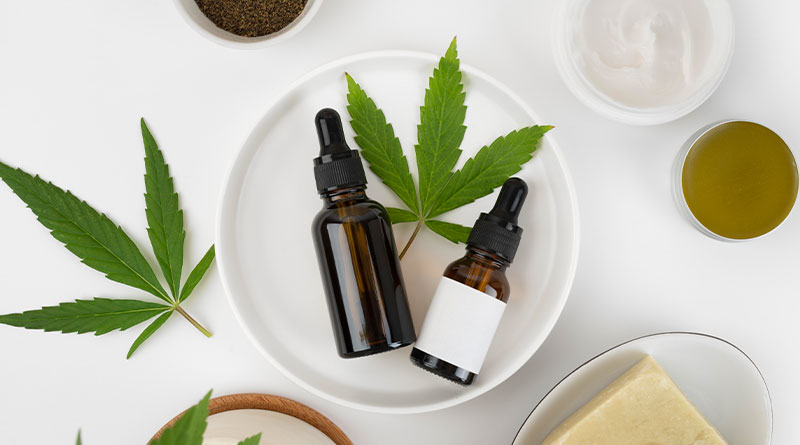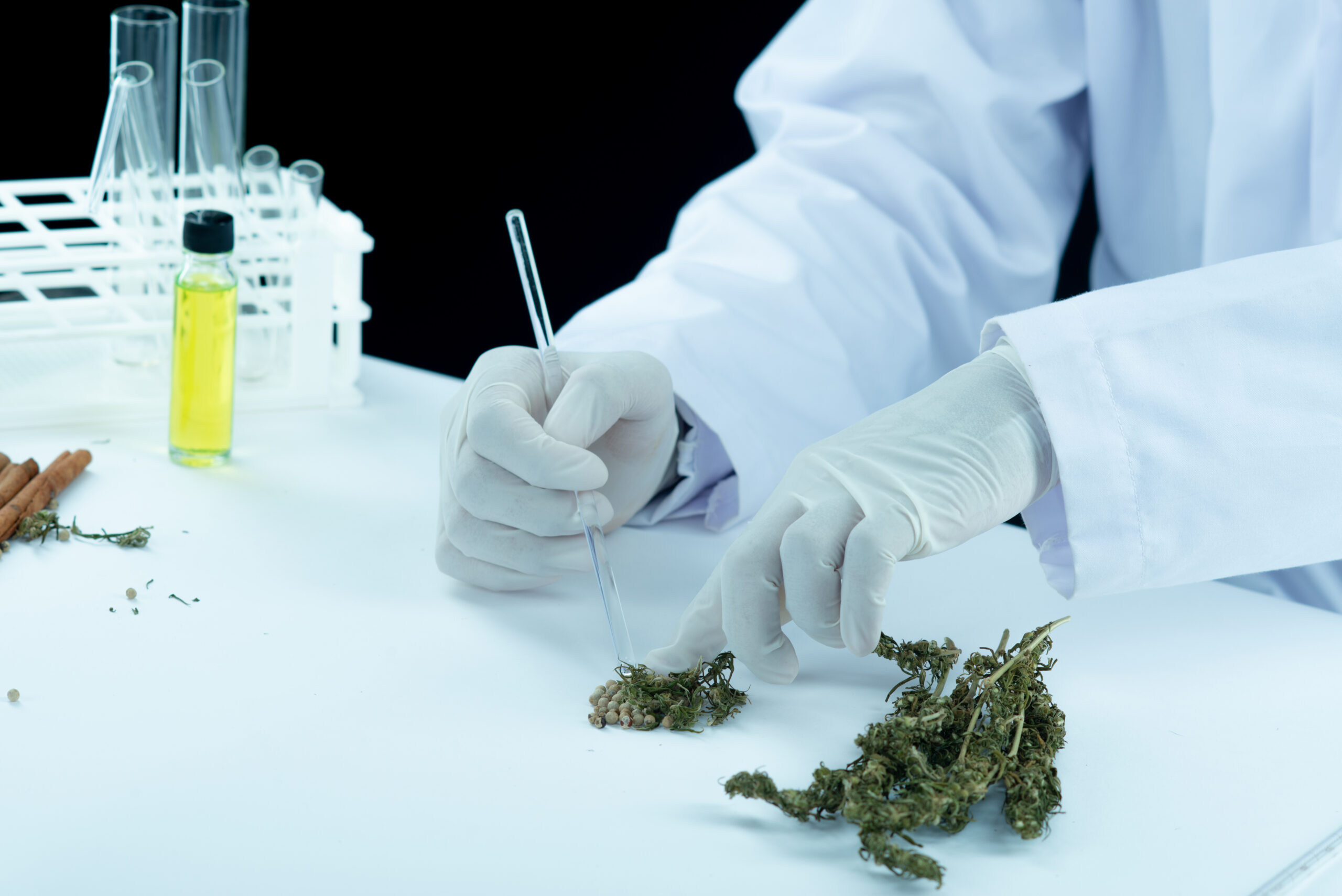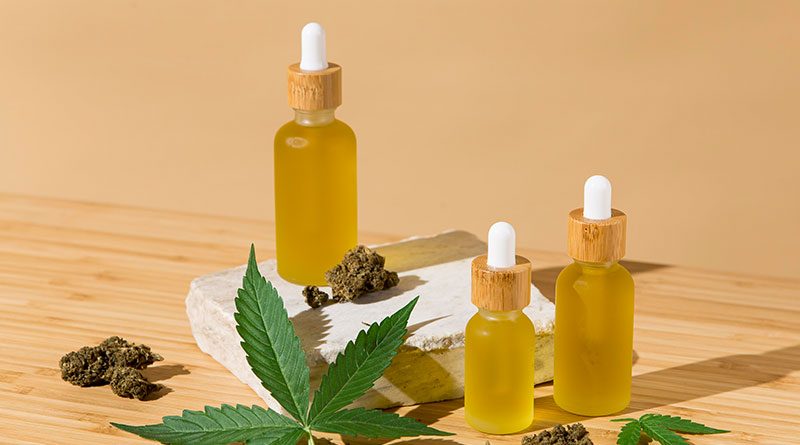As cannabis continues to gain popularity, more people are becoming curious about the differences between THC and CBD oil. Both of these oils are derived from the cannabis plant, but they have distinct effects on the body and mind.
In this article, we will explore the key differences between THC and CBD oil, their legal considerations, and their health benefits.
What is THC Oil?
THC is the main psychoactive component present in the cannabis plant. This compound is responsible for the “high” that people experience when using marijuana. THC oil is made by extracting THC from the cannabis plant and then infusing it into a carrier oil. It is often used for recreational purposes due to its euphoric effects.
THC oil is typically used in small doses and is administered through smoking or vaporization. When THC is smoked, it enters the lungs and quickly passes into the bloodstream, producing a rapid onset of effects. When THC oil is vaporized, it is heated to a temperature that is below its combustion point, creating a vapor that can be inhaled.
THC oil can also be infused into food and beverages, such as baked goods or teas, but the effects may take longer to kick in and can last longer than smoking or vaporizing.
What is CBD Oil?
CBD (cannabidiol) is another compound found in the cannabis plant. However, unlike THC, CBD does not produce a high. CBD oil is made by extracting CBD from the plant and then infusing it into a carrier oil. It is often used for medical purposes due to its potential health benefits.
CBD oil has become increasingly popular in recent years due to its potential health benefits. Studies have shown that CBD may have anti-inflammatory, analgesic, and anti-anxiety properties. It is often used to treat conditions such as chronic pain, anxiety, depression, and seizures.
In addition to its potential medical benefits, CBD oil is also often used for general wellness purposes. Many people use it to improve sleep, reduce stress and anxiety, and promote a sense of calm and relaxation.
Key Differences Between THC and CBD Oil
Understanding the differences between THC and CBD oil is essential for anyone considering using cannabis for recreational or medical purposes.
- Psychoactive Effects: As mentioned earlier, THC is psychoactive and produces a high, while CBD is non-psychoactive and does not produce a high. This is the main difference between the two oils.
- Legal Status: THC is still illegal under federal law in the United States, although some states have legalized it for medical or recreational use. CBD, on the other hand, is legal under federal law as long as it is derived from hemp plants with less than 0.3% THC.
- Medical Benefits: THC has been shown to have potential medical benefits, such as pain relief, nausea and vomiting reduction, and appetite stimulation. However, its psychoactive effects can also produce unwanted side effects. CBD, on the other hand, has shown promise in treating a wide range of medical conditions, including anxiety, depression, epilepsy, and chronic pain.
- Side Effects: THC can cause a range of side effects, including anxiety, paranoia, dry mouth, red eyes, and impaired memory and coordination. CBD, on the other hand, is generally well-tolerated and has few side effects.
- Dosage and Administration: The dosage and administration of THC and CBD oil differ significantly. THC oil is typically used in small doses and is administered through smoking or vaporization, which can be harmful to the lungs. CBD oil, on the other hand, can be consumed in a variety of ways, including tinctures, capsules, and topicals. Dosage can vary depending on the condition being treated and the individual’s weight, age, and other factors.
- Addiction Potential: THC has addictive properties and can lead to dependence and withdrawal symptoms in some individuals. CBD, on the other hand, does not have addictive properties and has been shown to potentially help individuals struggling with addiction to other substances, such as opioids.
Legal Considerations
The legal status of THC and CBD oil varies depending on where you live. In the United States, THC is still illegal under federal law, although some states have legalized it for medical or recreational use. CBD, on the other hand, is legal under federal law as long as it is derived from hemp plants with less than 0.3% THC.
Check This: Best CBD Gummies
It’s important to note that even in states where marijuana is legal, there are restrictions on how it can be used and who can use it. It’s also important to consult with a healthcare provider before using either THC or CBD oil, especially if you are pregnant, breastfeeding, or taking other medications.
Health Benefits of THC and CBD Oil
While THC and CBD oils differ in their psychoactive effects and legal status, they both offer potential health benefits. Here are some of the health benefits associated with THC and CBD oil:
THC Oil
- Pain relief: THC has been shown to be effective in reducing pain, making it a potential treatment option for chronic pain conditions.
- Appetite stimulation: THC can increase appetite, making it useful for people undergoing chemotherapy or struggling with appetite loss due to medical conditions.
- Nausea and vomiting reduction: THC has anti-nausea and antiemetic properties, making it a potential treatment option for conditions that cause nausea and vomiting.
CBD Oil
- Anxiety relief: CBD has been shown to have anxiolytic properties, making it a potential treatment option for anxiety disorders.
- Depression relief: CBD may help alleviate symptoms of depression by affecting serotonin receptors in the brain.
- Epilepsy treatment: CBD has been shown to reduce seizures in some forms of epilepsy, leading to the approval of a CBD-based medication for treating epilepsy.
Conclusion
THC and CBD oils have their own unique characteristics and potential benefits for users. While THC is known for its psychoactive effects and potential medical benefits, it is still illegal in many places and can produce unwanted side effects. CBD, on the other hand, is non-psychoactive, legal in many places, and has shown promise in treating a wide range of medical conditions with minimal side effects.
It is important to note that before using any cannabis products, it is advisable to consult with a doctor or healthcare professional, especially if you have pre-existing medical conditions or are taking other medications. This can help ensure that you use these products safely and effectively, and avoid any potential negative interactions.
FAQs
Q: Is THC oil legal?
Ans: THC oil is illegal under federal law in the United States, but some states have legalized it for medical or recreational use.
Q: Will CBD oil get me high?
Ans: No, CBD oil does not produce a high as it is non-psychoactive.
Q: What are the potential medical benefits of THC oil?
Ans: THC oil has shown potential in providing pain relief, reducing nausea and vomiting, and stimulating appetite.
Q: Can CBD oil be used for anxiety?
Ans: Yes, CBD oil has shown promise in treating anxiety and other mental health conditions.
Q: Are there any side effects of using THC oil?
Ans: Yes, THC oil can cause a range of side effects, including anxiety, paranoia, dry mouth, red eyes, and impaired memory and coordination.
Q: Is it safe to use CBD oil?
Ans: CBD oil is generally considered safe, but it may interact with certain medications and can cause some mild side effects such as dizziness, fatigue, and dry mouth. It is always recommended to consult with a healthcare professional before using CBD oil or any other supplement.
Q: Can CBD oil be addictive?
Ans: No, CBD oil is not addictive as it does not contain the psychoactive compound THC.
Sahil Sachdeva is the Founder of curemedoc.com and a Digital Marketing professional with years of experience. If you need help in Content writing and want to increase your website ranking, connect with him, as he has some premium websites where you can share blogs with DoFollow links and increase your website’s ranking on Google.





